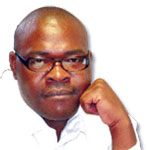
No continent in the past century has been an agenda more than Africa. It first appeared on the agenda during the Berlin conference (1884–85) when European countries decided to partition it into modern day countries. The agenda at the time was not to develop it, but to impoverish its people and rob its resources. The result of this was a mental oppression which has placed Africans in a serious identity crisis. We are torn between wanting to be Africans and yet we emulate the former colonisers. We lost the African grounding a long time ago and what we call African-ness is a hybrid that inclines towards wanting to be Western.
Column by Tapiwa Gomo
A story is told of how the African Union originated as the Union of African States, an early confederation that was established by Kwame Nkrumah in the 1960s, as well as subsequent attempts to unite Africa, including the Organisation of African Unity (OAU), which was established on 25 May 1963, and the African Economic Community in 1981. These epical developments were inspired by various periodic factors.
People like Nkrumah were inspired by the desire for a free Africa, which they believed would establish a solid foundation for Africa’s liberation into development. As they established the OAU, they were aware that development as an agenda was not within their stride but it was imperative to launch it for future generation of leaders.
This dream was achieved, not through speeches and rhetoric, but practical commitment to the agenda. The AU is alive and functioning and Africa is now an independent continent.
However, Africans remain poor, which means Nkrumah’s long term dream is yet to be achieved. His dream of a developed Africa is let down by the current crop of leaders who have reduced the African development agenda to mere speeches at every international summit incognisant of the fact that where man’s interest lies, the sense of listening deafens.
Analysing Jacob Zuma, the President of South Africa through the narratives of Western lenses makes him look uncivilised and unintelligent. He fits in this matrix because he is a traditional man in a world that accepts homosexuality and rejects polygamy. He holds no degrees in a world that respects academic qualifications than the real grit and grains of a functioning grey matter. And he is not an orator but a doer. Anyone following the road to Mangaung would have trampled upon potholes of Zuma’s demise. But he emerged unscratched.
People like Julius Malema, whose logic was blurred by emotions, wanted Zuma’s political crucifixion for lacking an African agenda. Like I said earlier, if your ears and mind are tantalised and titillated by the grandeur of oratory, certainly Zuma is not your type of leader. But if you want an agenda pusher with less noise, perhaps Zuma is your man not only for South Africa, but Africa and its perpetual agenda. For a mind marinated and Christianised by the gospel of Western way of looking at things, this sounds a bit crazy.
- Chamisa under fire over US$120K donation
- Mavhunga puts DeMbare into Chibuku quarterfinals
- Pension funds bet on Cabora Bassa oilfields
- Councils defy govt fire tender directive
Keep Reading
For starters, Zuma outsmarted the educated Thabo Mbeki on several occasions, including the court cases and kicking him out of office before time.
Secondly, upon taking over the throne, Zuma didn’t eject Mbeki and his Africa Renaissance ideas from the African panorama. For Zuma, that agenda needed to be implemented than preached. So he left Mbeki busy in the continental arena negotiating peace deals including one that gave jobs to current Zimbabwe politicians.
Mbeki remains a busy man across the continent. It is Jacob Zuma’s lack of shyness to impose South Africa’s economic might on the continent’s supra-governance system that led his ex-wife and confidante Nkosazana Dlamini-Zuma to head the Africa Union and push the African agenda. For his lack of oratory aptitude, it may seem that Zuma lacks a foreign policy, but if a leader can keep his former president busy with peace negotiations and setting the political agenda across the continent and then impose his most trusted comrade in charge of African affairs, perhaps he is the kind of leader Africa needs.
But of course his unpronounced foreign policies are benefiting South Africans, both black and white. Every time the negotiating teams travel to those troubled African countries, they are either accompanied or influenced by South Africa’s economic interests. Where certain leaders are accompanied by delegations of hundreds of people to New York for a two-page UN speech, South Africa is accompanied by a delegation of business people to those conflict but mineral rich African countries to explore investment opportunities. That’s how development works. They can not negotiate for peace just to allow the West and China to explore opportunities.
They are spreading their tentacles across the continent, basking in the political influence of their government. The African Renaissance is not gone. It is being implemented by Mbeki himself through the quiet diplomacy of an uneducated Zulu called Zuma. It is being enjoyed by South African investors and should that continue, they are likely to be the main movers and shakers of the African agenda. The conflict and mineral rich African countries prefer trading with another African country than the West and China. While speeches may represent the proverbial silver, Zuma’s silence is turning into gold for South Africa. Where Zimbabwe is taking from foreign-owned companies, South Africa is exploring opportunities in foreign territories pooling the resources back home. Of course they have a wise but uneducated Zuma, an educated Mbeki and another Dlamini-Zuma to safeguard their interests at Africa Union level. And guess what, we have speeches and jingles.
- Tapiwa Gomo is a development consultant based in Pretoria, South Africa











